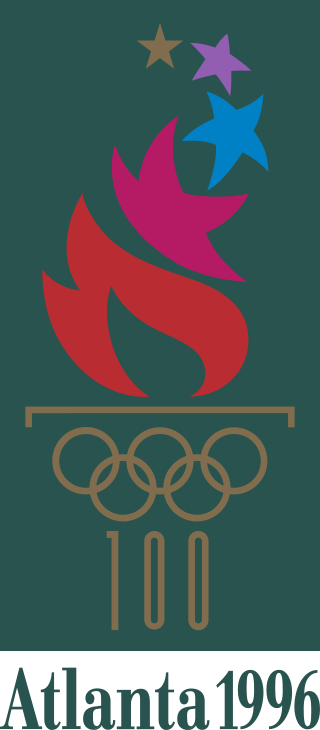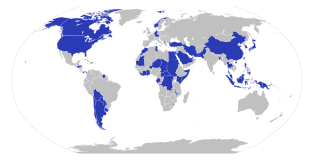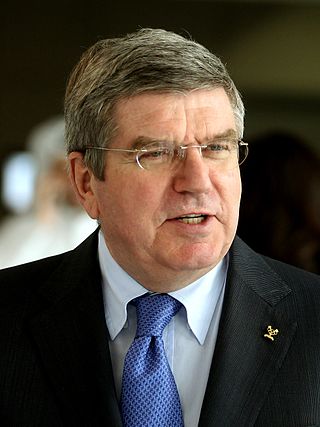
The Summer Olympic Games, also known as the Games of the Olympiad, and often referred to as the Summer Olympics, is a major international multi-sport event normally held once every four years on leap years. The inaugural Games took place in 1896 in Athens, Greece, and the most recent Games were held in 2021 in Tokyo, Japan. The International Olympic Committee (IOC) is responsible for organising the Games and for overseeing the host city's preparations. The tradition of awarding medals began in 1904; in each Olympic event, gold medals are awarded for first place, silver medals for second place, and bronze medals for third place.
The Winter Olympic Games were created out of the success of the Summer Olympic Games, which are regarded as the largest and most prestigious multi-sport international event in the world.

The 1996 Summer Olympics were an international multi-sport event held from July 19 to August 4, 1996, in Atlanta, Georgia, United States. These were the fourth Summer Olympics to be hosted by the United States, and marked the 100th anniversary of the 1896 Summer Olympics in Athens, the inaugural edition of the modern Olympic Games. These were also the first Summer Olympics to be held in a different year than the Winter Olympics since the Winter Olympics commenced in 1924, as part of a new IOC practice implemented in 1994 to hold the Summer and Winter Games in alternating, even-numbered years. The 1996 Games were the first of the two consecutive Summer Olympics to be held in a predominantly English-speaking country, preceding the 2000 Summer Olympics in Sydney, Australia. These were also the last Summer Olympics to be held in North America until 2028, when Los Angeles will host the games for the third time.

The 1984 Summer Olympics were an international multi-sport event held from July 28 to August 12, 1984, in Los Angeles, California, United States. It marked the second time that Los Angeles had hosted the Games, the first being in 1932. California was the home state of the incumbent U.S. President Ronald Reagan, who officially opened the Games. These were the first Summer Olympic Games under the IOC presidency of Juan Antonio Samaranch.

The 1980 Summer Olympics boycott was one part of a number of actions initiated by the United States to protest against the Soviet invasion of Afghanistan. The Soviet Union, which hosted the 1980 Summer Olympics in Moscow, and its satellite states later boycotted the 1984 Summer Olympics in Los Angeles.
The Closing Ceremony of the 2006 Winter Olympics took place on 26 February 2006 beginning at 20:00 CET (UTC+1) at the Stadio Olimpico in Turin, Italy.
Olympische Hymne is a composition for orchestra and mixed chorus by Richard Strauss.
The Closing Ceremony of the 1996 Summer Olympics took place on August 4, 1996, at the Centennial Olympic Stadium in Atlanta, United States at approximately 8:00 PM EDT (UTC−4). It was produced by Don Mischer.

The 2008 Summer Olympics closing ceremony was held at the Beijing National Stadium, also known as the Bird's Nest. It was directed by Chinese filmmaker Zhang Yimou and began at 20:00 China Standard Time (UTC+8) on Sunday night, 24 August 2008. The number 8 is associated with prosperity and confidence in Chinese culture.

The Olympic Games ceremonies of the Ancient Olympic Games were an integral part of these Games; the modern Olympic games have opening, closing, and medal ceremonies. Some of the elements of the modern ceremonies date back to the Ancient Games from which the Modern Olympics draw their ancestry. An example of this is the prominence of Greece in both the opening and closing ceremonies. During the 2004 Games, the medal winners received a crown of olive branches, which was a direct reference to the Ancient Games, in which the victor's prize was an olive wreath. The various elements of the ceremonies are mandated by the Olympic Charter, and cannot be changed by the host nation. This requirement of seeking the approval of the International Olympic Committee (IOC) includes the artistic portion of opening and closing ceremonies.

The closing ceremony of the 2004 Summer Olympics was held on 29 August 2004 21:15 EEST (UTC+3) at the Olympic Stadium, in Marousi, Greece, a suburb of Athens.

The president of the International Olympic Committee is head of the executive board that assumes the general overall responsibility for the administration of the International Olympic Committee (IOC) and the management of its affairs. The IOC Executive Board consists of the president, four vice-presidents, and ten other IOC members; all of the board members are elected by the IOC Session, using a secret ballot, by a majority vote.

The Closing Ceremony of the 1980 Summer Olympics was held at 19:00 Moscow Time (UTC+3) on 3 August 1980 at the Grand Arena of the Central Lenin Stadium. It was attended by the Chairman of the Presidium of the Supreme Soviet of the USSR, Leonid Brezhnev. IOC President Lord Killanin closed the Games for the final time and passed the position on to Juan Antonio Samaranch.
The closing ceremony of the 1994 Winter Olympics was held in Lysgårdsbakken in Lillehammer, Norway on 27 February 1994. All spectators were handed a flashlight with the inscription "Remember Sarajevo" – the host of the 1984 Winter Olympics which was at the heart of the Bosnian War. The first entrants on the stage were Liv Ullmann and Thor Heyerdal, followed by the athletes' precession. After the flag had been transferred to Nagano mayor Tasuku Tsukada, speeches were held by Lillehammer mayor Audun Tron, LOOC head Gerhard Heiberg and IOC president Juan Antonio Samaranch. The latter used his speech to commemorate Sarajevo's situation, before giving Heiberg the Olympic Order in gold, and declaring the games "the best Olympic Winter Games ever". Artistic presentations followed, revisiting many of the themes from the opening ceremony. The mascots of the 1998 Winter Olympics, the "Snowlets", were also presented. Of the 2,200 people performing in the opening and closing ceremonies, only 50 were professionals.
The opening ceremony of the 1996 Summer Olympics took place in the evening on Friday, July 19 at the Centennial Olympic Stadium, Atlanta, United States. As mandated by the Olympic Charter, the proceedings combined the formal and ceremonial opening of this international sporting event, including welcoming speeches, hoisting of the flags and the parade of athletes, with an artistic spectacle to showcase the host nation's culture and history. The Games were officially opened by President of the United States of America Bill Clinton.

The 2000 Summer Olympics Closing Ceremony was held on 1 October 2000 in Stadium Australia. As with the opening ceremony, the closing ceremony was directed by Ric Birch as Director of Ceremonies while David Atkins was the Artistic Director and Producer. The Closing Ceremony was attended by 114,714 people, the largest attendance in modern Olympic Games history. The ceremony celebrated Australiana; Australian cultural celebrities, icons, media, and music, with floats designed in the style of Reg Mombassa. Around 2.4 billion watched the telecast of the closing ceremony.

The closing ceremony of the 2018 Winter Olympics was held on 25 February 2018 from 20:00 to 22:05 KST (UTC+9). The ceremony took place at Pyeongchang Olympic Stadium in Pyeongchang County, South Korea.

The opening ceremony of the 1984 Summer Olympic Games took place on the afternoon of Saturday, July 28, in the Los Angeles Memorial Coliseum, Los Angeles. As mandated by the Olympic Charter, the proceedings combined the formal ceremonial opening of this international sporting event with an artistic spectacle to showcase the host nation's culture. The 1984 Games were formally opened by President of the United States Ronald Reagan. The event was conducted in front of 92,516 attendants. The ceremony was a $5 million production, titled Music of America.

The closing ceremony of the 1988 Summer Olympics took place at Seoul Olympic Stadium in Seoul, South Korea, on 2 October 1988 at 19:00 -20:45 KDT (UTC+10).
The opening ceremony of the 1988 Summer Olympics took place at Seoul Olympic Stadium in Seoul, South Korea, on 17 September 1988 at 10:30 KDT (UTC+10). The official song of this game was "Hand in Hand", which was performed by Koreana. The Games were officially opened by President of the Republic of Korea Roh Tae-woo.
The closing ceremony of the 1998 Winter Olympics took place at Nagano Olympic Stadium, Nagano, Japan, on 22 February 1998. It began at 18:00 JST and finished at approximately 19:41 JST. As mandated by the Olympic Charter, the proceedings combines the formal and ceremonial closing of this international sporting event, including farewell speeches and closing of the Games by IOC President Juan Antonio Samaranch. The Olympic flame has been extinguished.











